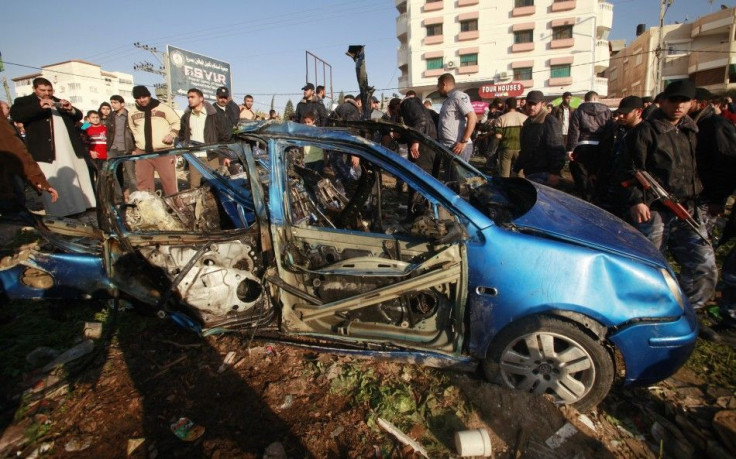Israel, Gaza Militants Call Truce After Days Of Bloodshed

Israel halted airstrikes against Palestinian militants in the Gaza Strip early Tuesday and rocket fire from the territory subsided, as a cease-fire brokered by Egypt ending four days of clashes appeared to take effect.
Both sides agreed to end the recent violence and begin a comprehensive period of mutual calm, an Egyptian official involved in the deal told Reuters.
A spokesman for Hamas, the militant group that governs Gaza, was quoted by the BBC as saying that Israel had agreed to stop attacking militants if they halted rocket attacks on Israel's southern cities.
Media reports from Jerusalem, however, said militants' missile strikes were continuing Tuesday. Three projectiles were fired into southern Israel after the cease-fire was announced, according to the Jerusalem Post. No injuries were reported.
Sporadic rocket fire from Gaza wouldn't necessarily imperil the cease-fire, the Associated Press noted, because militant groups are splintered and orders don't trickle down from a single commander.
The violence began Friday with Israel's killing of a militant commander in Gaza whom the Jewish state accused of plotting to attack Israelis.
At least 24 Palestinians died in the cross-border fighting that followed, with the cause of one civilian's death in dispute, according to the AP. There were no Israeli deaths, but the lives of 1 million residents of southern Israel were disrupted by frequent air raid warning sirens.
An Israeli police spokesman said more than 200 rockets were fired at Israel between Friday and the early hours of Tuesday, when the truce went into effect, the AP reported.
The Israeli military said it carried out no airstrikes after the cease-fire took hold.
Because Israel and Gaza's Hamas leaders shun each other, the truce isn't formal and there is no signed document that can serve as a reference.
The local Hamas leadership had kept out of the fighting, fearing an all-out offensive would spiral out of control. Instead, it let militants from two groups, Islamic Jihad and Popular Resistance Committees, carry out the attacks on southern Israel.
© Copyright IBTimes 2024. All rights reserved.












